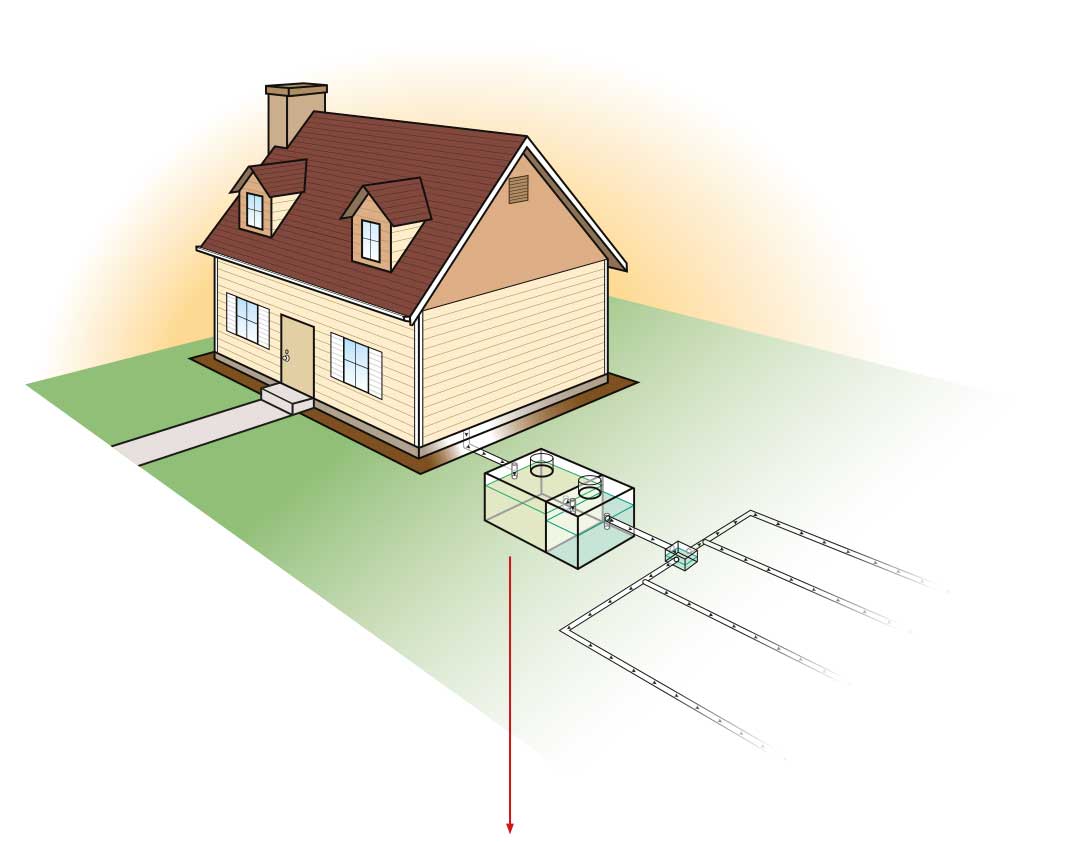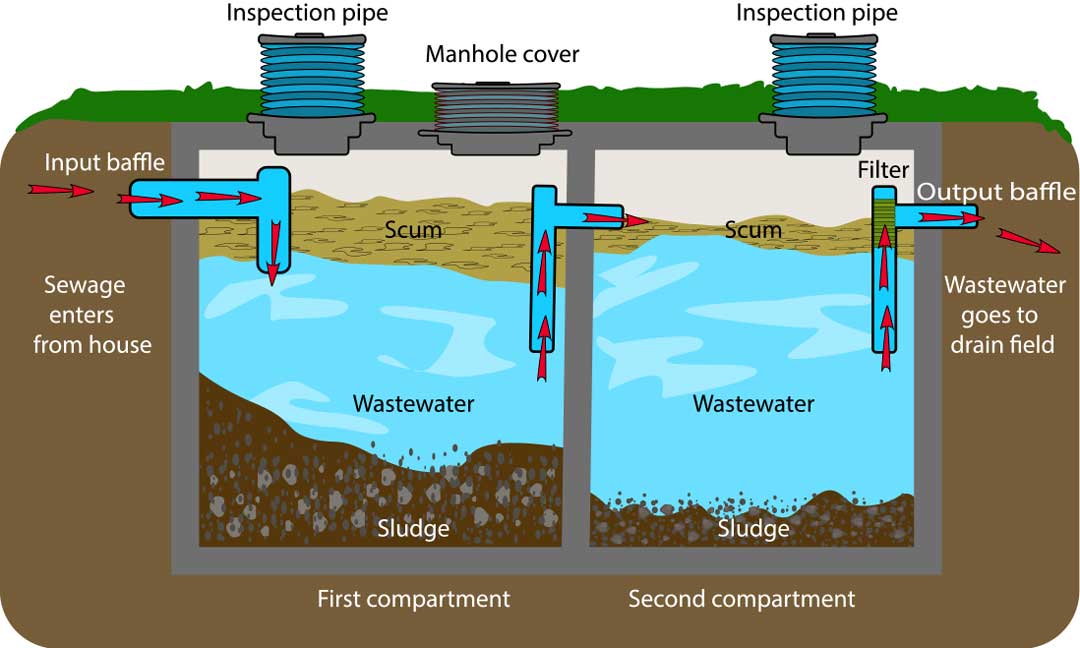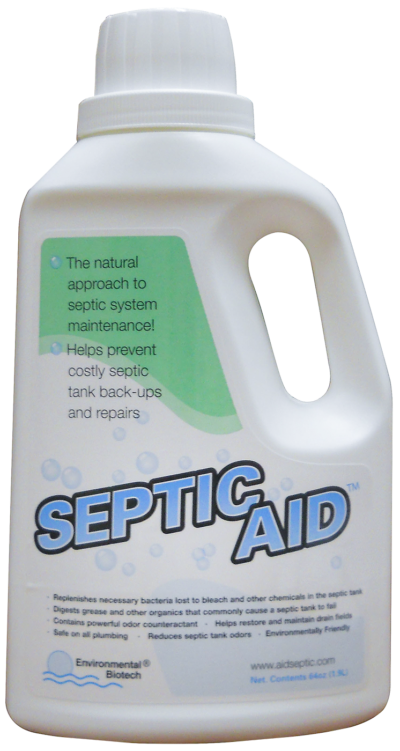

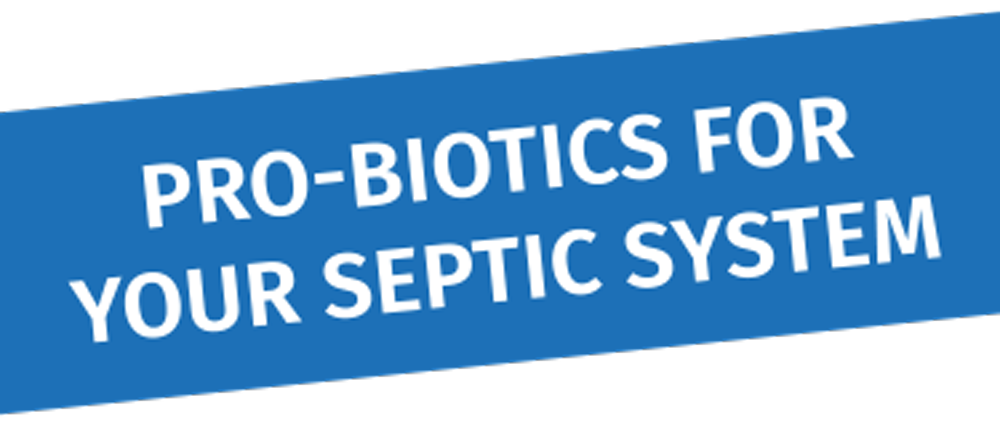
What is a Septic System and how does it work?
When you are outside of a major city and have no access to a sewer system, you have your own system that takes waste water generated from your home and collects it , tries to process the water, and lets the clarified treated water leach into a drain field or a soak away. Then every so often, you would call in a pump truck to clean out any solids like paper, solids etc that build up over time and remain therein.
The septic tank holds wastewater from the home where solids settles at the bottom of the tank (the sludge layer) and fats oils and grease rise to form the scum layer. Between the two layers lies clarified effluent, which flows into an outlet pipe and gradually flows through to a soak away or drain field. Bacterial activity in the septic tank naturally break down organic waste matter and slow the accumulation of the sludge layer.
Are bacteria important in a septic tank?
The everyday waste, from paper, excrement, urine, fats oils and grease, that you put into your septic system is typically broken down by the millions of naturally occurring bacteria found in your septic tank and other organics in the system. When some common household chemicals like antibacterial soaps and bleach are overused, they can kill off these beneficial bacteria that populate your septic tank. Large volumes of water going into the drain can flush out a large volume of beneficial bacteria that exist in your septic tank. In this case, the sewage can build up more quickly, eventually blocking the outlet pipe or possibly clogging your drain field. This causes, a septic system backup, creating an emergency to pump out the system and damage the drain field.
What is septic tank system backup?
A septic system backup can be NASTY! It’s a smelly mess inside and outside of your home. Build-up of excrement and solids in the tank can go unnoticed until it is too late! Now you are in trouble. It will also cause a huge back up in the home, coming through the bath drains and kitchen drains. Definitely an ISSUE! That wastewater can also backup into your yard, low-ground areas, and possibly contaminate streams or ponds if they are nearby.
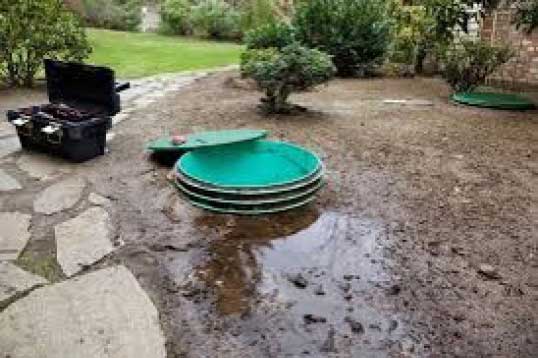
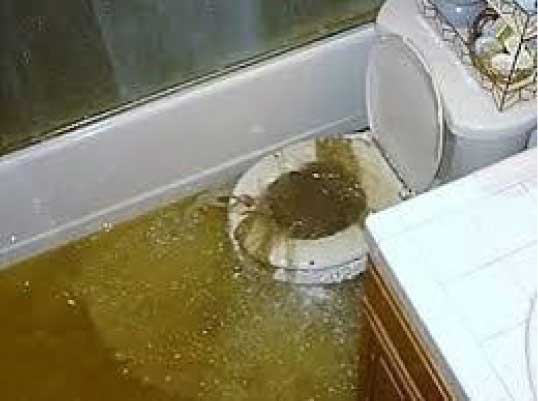
Typical Domestic Septic Tank System
